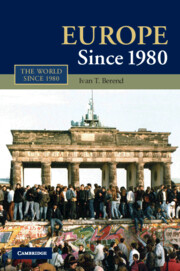Crossref Citations
This Book has been
cited by the following publications. This list is generated based on data provided by Crossref.
Connolly, Richard
2012.
The Determinants of the Economic Crisis in Post-Socialist Europe.
Europe-Asia Studies,
Vol. 64,
Issue. 1,
p.
35.
2012.
The Transatlantic Century.
p.
331.
2012.
The Transatlantic Century.
p.
267.
STANCIU, CEZAR
2014.
Autonomy and Ideology: Brezhnev, Ceauşescu and the World Communist Movement.
Contemporary European History,
Vol. 23,
Issue. 1,
p.
115.
Gal, Zoltan
and
Sass, Magdolna
2014.
Role of Financial Sector FDI in Regional Imbalances in Visegrad 4 Countries and in Slovenia.
SSRN Electronic Journal,
Berend, Ivan T.
2014.
Industrial Policy in Europe after 1945.
p.
279.
2017.
L'Europe centrale et orientale.
p.
261.
Andrea, Schmidt
2018.
Challenges of the Illiberal Democracy in Hungary. Some Aspects to the 2018 Elections
.
Polish Political Science Review,
Vol. 6,
Issue. 2,
p.
70.
Maher, Richard
2021.
International Relations Theory and the Future of European Integration.
International Studies Review,
Vol. 23,
Issue. 1,
p.
89.
Kowalewski, Paweł
2024.
Monetary processes in the world economy following the end of the Bretton Woods System.
Bank i Kredyt,
Vol. Vol. 55,
Issue. No. 6,
p.
697.



